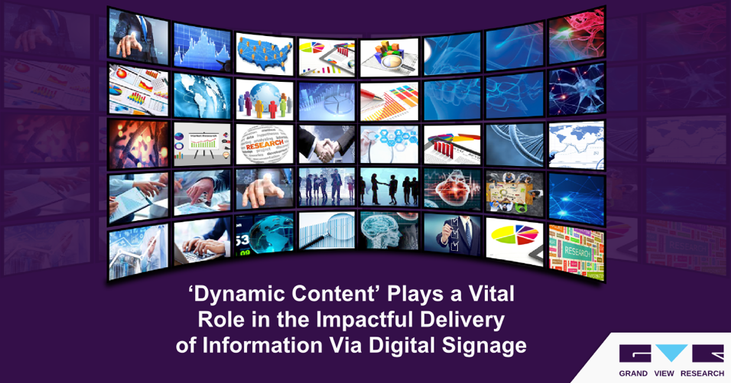Technology development has been on a roll, churning out groundbreaking advancements every year. Be it virtual reality, artificial intelligence, facial recognition, or machine learning – every tantalizing technology has, in some way or the other, made its presence felt in the events industry. Event planners and attendees have capitalized on, and thoroughly enjoyed, the multitude of benefits these new technologies bring. Taking participant engagement to greater heights, event technologies have the potential to revolutionize how corporate and social events are being planned and executed.
Work Smarter
Regardless of the size and scale of an event, event professionals are constantly under pressure to engage their participants and attendees with new and innovative strategies, while also keeping in mind budget, time, and personnel constraints.
Working smarter has become crucial in events today and thanks to new products, apps, devices, and technologies, planners can cater to multiple event requirements and overcome logistical challenges. Manpower is a key element in almost every event and smart planners can help minimize the need for expensive staff by using connected digital signage, which delivers the ability to make real-time changes and updates.
One such example is EventMobi’s portfolio of Live Display solutions. These dynamic digital displays installed onsite highlight key information for event attendees and cycle through current as well as upcoming sessions. Social media engagement is a major benefit these displays offer, showcasing real-time social feed and encouraging participation at the venue. Digital displays also offer additional brand placement opportunities to potentially generate revenue or supplement exhibitor and sponsor benefits.

Another way to work smarter is Chatbots. More event organizers are turning to these AI-powered bots order to efficiently manage, engage, and respond to queries and feedback from participants. Chatbots provide immediate, accurate information and can help with attendee engagement. Sciensio’s Concierge Eventbot, for instance, is designed for use at exhibitions, conferences, and events and specializes in building customer-relationship using messaging platforms. Winner of the IBTM World Tech Watch Award in 2017, the bot provides event attendees information through SMS or apps like Telegram, Messenger, and Twitter. Without needing to download any app, attendees can simply text questions and get real-time answers.
Immersive Experience
Participant engagement is vital to the success of any event. Virtual reality (VR) and augmented reality (AR) have both emerged as key catalysts for innovation and their immense potential, whether alone or in tandem, can change the way sponsors, organizers, vendors, and attendees interact at events. Immersive VR uses headgear and olfactory devices to transport users to a different world and recreate a real-life setting, allowing for a unique experience.
A case in point would be an annual fundraiser for New York non-profit Charity: Water, where attendees were taken on a virtual trip to a village in Ethiopia. With the help of Samsung Gear VR headsets, the guests experienced firsthand the joy a 13-year-old girl and her family felt on getting clean water for the first time. At the end of the night, the charity ended up receiving $2.4 million in donation, which was much more than it had expected.
Budweiser implemented a similar idea at its Beer Garage at the 2016 SXSW Interactive Festival in Austin, Texas. Attendees were treated to a 4D Immersive Reality Budweiser Brewery Tour, where they were transported to Anheuser-Busch InBev’s facility in St. Louis. The multisensory tour gave attendees the chance to see, smell, hear, and even taste how Budweiser is made. The event was a major success, with people lining up to test the high-tech experience.
In addition to this, virtual venues and attendance is also now possible thanks to VR. A significant portion of an event budget is dedicated to venue, lodging, and other logistics. Organizing a virtual event allows organizers to save a significant amount in planning costs. Same goes for those attending conferences and events, wherein travel time and lodging costs can be saved. Advancements in telepresence equipment can let speakers as well participants attend an event remotely.
Facial Recognition
Weighing in on the benefits of facial recognition technology, Grand View Research finds that this powerful tool can be used in multiple ways to improve events, right from speeding check-ins to personalizing user experience. The number of algorithms being built to analyze and interpret facial features is on a consistent rise and this tool is already being used to tag photos on social media, getting through border security, and paying with smartphones. As people get accustomed to facial recognition technology, its use for personal identification presents a massive advantage in the events industry.
No matter the type of event, check-ins can be a lengthy, tiresome, and tricky affair. Every organizer aims to ensure smooth and efficient check-in processes and facial recognition can aid this task by eradicating user action. Using this technology, an attendee can be immediately identified at the check-in station without requiring any action from them. There is no need for any expensive or complex hardware as most laptops, smartphones, tablets, or any device with a camera can be used for this process. This not only reduces hardware and infrastructure costs but also makes the process of check-in more efficient and improves overall customer satisfaction.
Houston-based award-winning facial recognition company Zenus collaborated with event management platform Eventinterface last November to offer the world’s first facial recognition check-in at an event. The Zenus technology was also used at Spring Masterminds 2018, a three-day event hosted by KW MAPS Coaching and held in Maryland.
With over a hundred attendees needed to be checked-in in a short period of time, the Zenus facial recognition software achieved a nine-second average check-in time per attendee. Attendees registered online and uploaded a picture of themselves to opt for face recognition. The software enabled event planners to identify these attendees by going through a database of faces in real time. Costing just a few cents per attendee, the software can save a lot of time and money.
Event technologies have opened up a whole new world of exciting and unimaginable possibilities, for event planners and attendees alike. They also offer the promise to help companies stand out from the crowd. The rate at which technology is evolving is only accelerating the pace of idea generation within the events industry.



